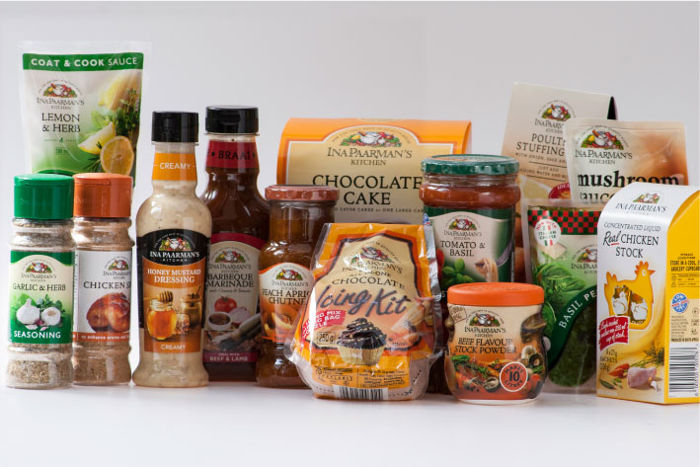Biggest Retail Business Trends that Will Prevail in 2022

In the current market climate of readjustment, the retail sector has adopted a flexible strategy that makes it easier to adjust to new consumer habits, causing marketers to reorganise their resources and distribution channels for 2022.
With the constant changes and moving goalposts of consumer needs, 5 key trends that are sure to evolve in 2022 have been identified.
OMNICHANNEL EXPERIENCES WILL CONTINUE TO GROW
According to the “Retail Marketing Hot Trends 2022” study conducted by Tiendeo, 58.6% of retailers and brands will be investing in digital channels in 2022. Changes in shopping habits have made the digital channel the preferred medium for marketers to connect with consumers.
Likewise, investment in traditional media (TV, radio or outdoor advertising) has shifted to digital media. This is highlighted in the study where digital marketing (80.8%) along with social media (68.8%) will be the most prominent investments for marketing budgets in 2022.

Now more than ever, the use of adaptable strategies in the face of an uncertain future, together with the need to offer omnichannel experiences, will form the cornerstone of marketing strategies in 2022.
THE RISE OF THE “EXPERIENTIAL STORE”
The concept of the traditional store is disappearing to make way for stores that offer experiences: stores that are able to combine the physical and digital worlds at a specific time and place.
A collateral effect of this change is the collapse of the shopping centre business model as we know it today. A business model that is in danger of disappearing in favour of a more flexible one, in which temporary or even one-off campaigns will become the norm.
As a result, shopping centres will no longer just be places to spend time in, but will become meeting points where spaces will become stages, where different types of shows will be offered to encourage the consumption of a particular product or brand.
The objective of this change in business model is to attract the public to the store (both those who intend to buy and those who don’t) and thus create a unique emotion-based experience that creates a greater connection and bond.
TECHNOLOGY AS A CATALYST FOR CHANGE
Mobile sales support solutions, interactive kiosks, and checkout-free shops are just some of the new innovations we’ll be seeing more of in 2022. With the incorporation of technology and artificial intelligence into the sales process, we will see more and more smart stores, allowing consumers to shop in places that are virtually unmanned and where there is no checkout.
In South Africa, Retail giant Shoprite took the plunge by testing a new type of supermarket focused on autonomy and self-service called Checkers Rush. This new concept of the supermarket has no cashiers, or till points and uses advanced AI camera technology, allowing customers to walk out with their purchases without having to check out. Using a reliable custom software developer can help create these types of digital ecosystems.
French retailers such as Carrefour, Auchan and Monoprix are also testing this new model. The development of this type of store allows retailers to compete with e-commerce giants by providing a more convenient and frictionless experience.
When it comes to online shopping, we will be taken to the store from the comfort of our own homes through augmented virtual reality. An example of this is Dyson, which is one of the first brands to test this concept with the opening of its own virtual store, where users are invited to try their products remotely and thus initiate the purchasing process.
THE CIRCULAR ECONOMY WILL BE AT THE CORE OF OUR STRATEGIES
Consumer concern for the environment is driving retailers and brands to adopt a more environmentally responsible strategy. Zero waste, second-hand and used markets will continue to grow as they address a crucial issue for the sector in 2022: reconciling purchasing power and environmental protection.
In recent months, second-hand spaces have appeared in some large retail stores in brands such as Auchan, Carrefour, Decathlon, Cora, Kiabi or Ikea with its “Circular Hub”.
Another noteworthy feature in relation to the circular economy is the firm commitment of several retailers to reduce or eliminate the production of their paper catalogues. Another example is Sweden’s Ikea, which announced its intention to stop printing its well-known paper catalogue by 2022. More and more retailers are reaching this point of awareness and opting for more sustainable communication tools such as digital catalogues.
LONG LIVE SOCIAL SHOPPING
Although social shopping is already a well-established trend, in 2022 we will see more and more brands and retailers using this medium as a complement to e-commerce, where social selling will rely mainly on influencers and brand ambassadors.
According to the Tiendeo study, 58% of retailers and brands intend to increase their advertising investments on social networks in the next 12 months.
Choosing the right e-commerce platform for your business doesn’t need to be a daunting and tough decision, nor a time-consuming task, and Digitise makes it simple by having a website and online store-builder, CRM system, and marketing toolkit all in one place. And of course, keeps affordability in mind with flexible pricing packages. The drag-and-drop store builder gives you the ability to add products with ease, grow your client base, and feature multiple payment options, so that your site is ready for the hungry South African market.
Why not sign-up and get cracking on your business now? Check out Digitise here.












